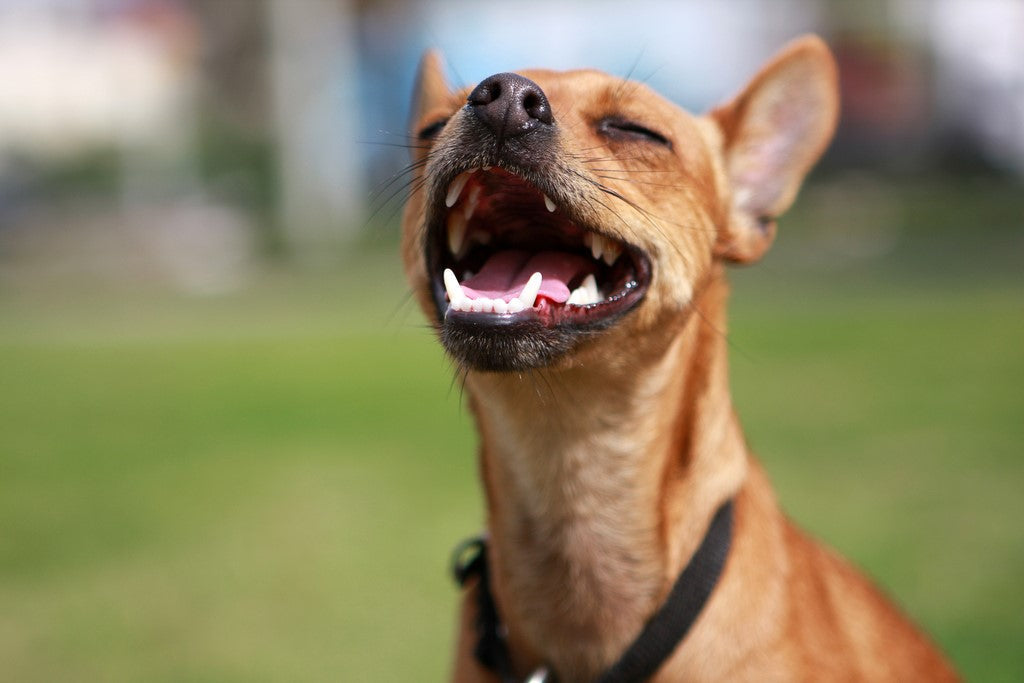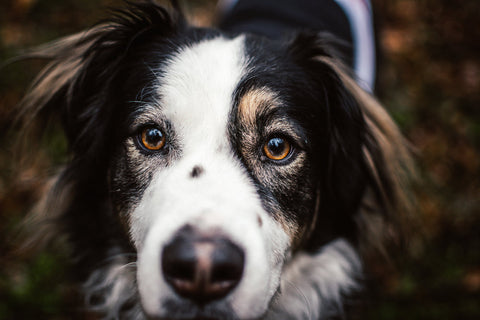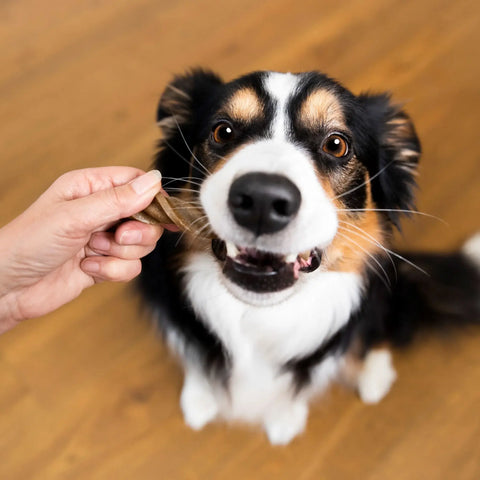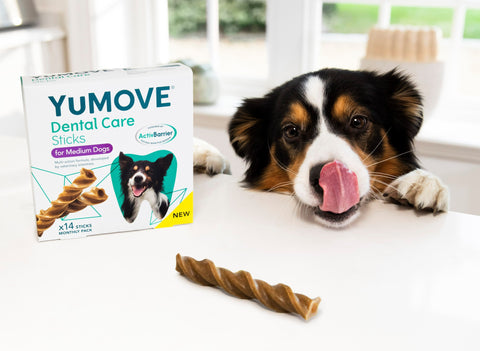

Is your dog prone to poor dental health?
Bad dog breath is something many dog owners have to deal with. But did you know that some dogs are more likely to have problems with their teeth than others? Just like people, all dogs can develop dental issues, but certain factors make some breeds more at risk.
Dental disease doesn’t only cause discomfort for your dog, but it can also cause other health problems – such as heart disease, kidney issues and, in some cases, organ failure. That’s why keeping your dog’s teeth in tip-top condition is essential. Discover which breeds are more commonly affected, what environmental factors put pets at risk, and how you can help…
Canine dental disease
When it comes to dental disease in people, your first thought is probably fillings and crowns to fill in cavities. But cavities are rare in dogs – although they can still happen. Instead, dogs tend to suffer more with plaque build-up, gum disease and tooth abscesses. Fractures of the teeth are also common, especially if your dog has had an accident or likes to chew things!
Please note that even dogs with extreme dental disease are likely to eat normally. It takes a lot to put a dog off their dinner. That’s why it’s important to schedule regular check-ups with your vet to make sure they’re not suffering in silence.

Breeds
All dogs can, and more than likely will, develop problems with their teeth. More than 80% of dogs by the age of two have dental disease. There are, however, some breeds more at risk than others:
Flat-faced breeds

One of the most common problems these dogs are prone to is a condition called ‘malocclusion’. This is when the teeth don’t line up correctly in the jaw – think overbites and underbites. Misalignment of the teeth can cause them to bash against one another whilst chewing. What’s more, this can cause some serious damage, resulting in the need for tooth extraction.
Dog breeds with flat faces – or the ‘brachycephalic’ breeds – such as Pugs, Shih Tzus, Bulldogs and Boston Terriers are susceptible to lots of different dental problems.
They’re also at risk of overcrowding in the mouth. Just think, they have the same number of teeth as a long-nosed dog, but the teeth are squashed into a smaller space. Overcrowding can lead to a build-up of food between the teeth, allowing bacteria to thrive and leading to gum disease. An overcrowded mouth is harder to clean, so regular professional cleaning under anaesthesia is vital to keeping your dog’s mouth healthy. In some cases, tooth extraction is needed to make more room in the mouth.
Toy breeds
Toy breed dogs – such as Chihuahuas, Maltese, Yorkies and Pomeranians – still have the same 42 teeth in their little mouths as larger breed dogs. This leads to overcrowding, with teeth erupting on top of one another or at odd angles in the mouth. Overcrowding makes it harder to keep the teeth clean, and regular professional cleaning is needed. Tooth extraction may be the answer for some dogs.
Toy and small breed dogs are also more likely to have problems with retained baby teeth – often a genetic condition. These retained teeth contribute to overcrowding in the mouth, increase the risk of gum disease or a tooth root abscess, and can cause your dog discomfort. Retained baby teeth will often need to be extracted.
Boxers
Boxers are another brachycephalic breed and are predisposed to multiple dental health issues, including:
- Supernumerary teeth. This is the development of extra teeth, leading to overcrowding and even displacement of normal teeth.
- Impacted teeth. This is where the tooth does not grow from the gumline as expected, and can lead to the development of a ‘dentigerous cyst’. This is a fluid-filled structure that weakens the jawbone and increases the risk of it breaking.
- Gingival hyperplasia. Also known as excessive overgrowth of the gums – this can lead to deep pockets that trap food and bacteria, leading to infection. Learn more about gingivitis in dogs.
- Fibromatous epulis. This is a type of benign tumour that grows in the mouth. They can trap food and lead to infection. Treatment requires surgery and tooth extraction.
Border Collies
As well as general dental disease, Border Collies are also at risk of a condition called ‘Raine syndrome’ or dental ‘hypomineralisation’. This genetic condition leads to the teeth being weaker than usual, making them more likely to be worn down or damaged, leading to tooth discolouration and discomfort. Border Collies are also more at risk of having an overbite.
Greyhounds

Greyhounds are another breed more at risk of developing dental disease. A recent study found that 39% of Greyhounds brought into veterinary clinics had dental disease – much higher than other large breed dogs.
Dachshunds
As a result of their narrow noses, Dachshunds are likely to have overcrowded mouths. Plus, they’re also more at risk of developing dental problems for the reasons discussed above.
Shelties and Cavalier King Charles Spaniels are also commonly affected by dental disease.
Lifestyle
Diet
A poor-quality diet can contribute to the development of dental issues. Dogs fed an exclusively wet diet are reported to have a higher incidence of dental disease. Some types of dog kibble have been specially formulated to help reduce plaque build-up, but once tartar is present, it will need to be removed with a professional clean.
What’s more, it’s a myth that bones are suitable for your dog's teeth. Whilst they might remove some plaque, they increase the risk of a tooth breaking (fracturing).
Age
As you might expect, dental disease is more common in older dogs, although it does occur earlier in some breeds. Retained baby teeth in young dogs can also increase the risk of dental disease, and your veterinarian may recommend their removal if they don’t fall out on their own.
Chewing

Some dogs are notorious for chewing on stones or bones. This can lead to tooth breakage – most commonly, the large teeth at the back of the mouth. Typically, when these teeth break, the whole side of the tooth snaps off, known as a ‘slab fracture’. This is painful and can lead to tooth root exposure, putting your dog at risk of severe infections. The surrounding teeth near the damaged tooth are more likely to get a build-up of plaque and subsequent disease, too.
Prevention of dental disease
Here are some simple things you can do to help keep your dog’s teeth healthy:
- Tooth brushing. The single best thing you can do for your dog’s oral health is to brush their teeth – ideally every day. Starting when your dog is a puppy and making this a positive, fun experience is a great way to get into a lifelong beneficial habit.
- Regular checking. Ideally, you should visually check all your dog’s teeth and gums at least once a week. If you can make this part of a daily tooth brushing regime, even better! Your local veterinarian will take a closer look at any changes you notice.
- Dental sticks. There are lots of dental sticks for dogs on the market – both treats and toys – designed to help reduce plaque build-up on the teeth. These should only be used in addition to, not instead of, tooth brushing.
- Professional dental check-ups and cleaning. All dogs will benefit from regular dental check-ups with a vet. A significant portion of dental disease in dogs lies below the gumline, so even if your dog’s teeth appear outwardly clean, they can still be causing discomfort. Even with a meticulous tooth cleaning regime at home, your dog will likely need a professional tooth cleaning at some point.
The final word
Dental disease is an extremely common and often overlooked problem in our canine companions, but sadly it’s estimated that it can reduce your pet’s lifespan by as much as one to three years. Just like us, our dogs’ teeth need daily attention to keep them in tip-top condition. Regular dental health checks by your veterinarian can identify problems early, helping to keep your pup happy and healthy for life.
Want to get your teeth into some more practical advice? Take a look at our guide on cleaning your pets’ teeth at home, or check out our other Health Guides for some fun and informative dog content.



